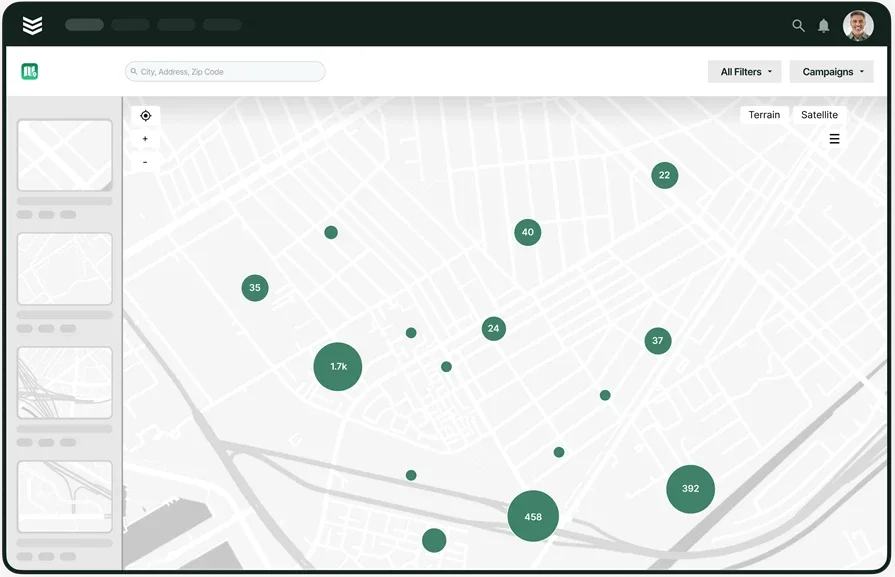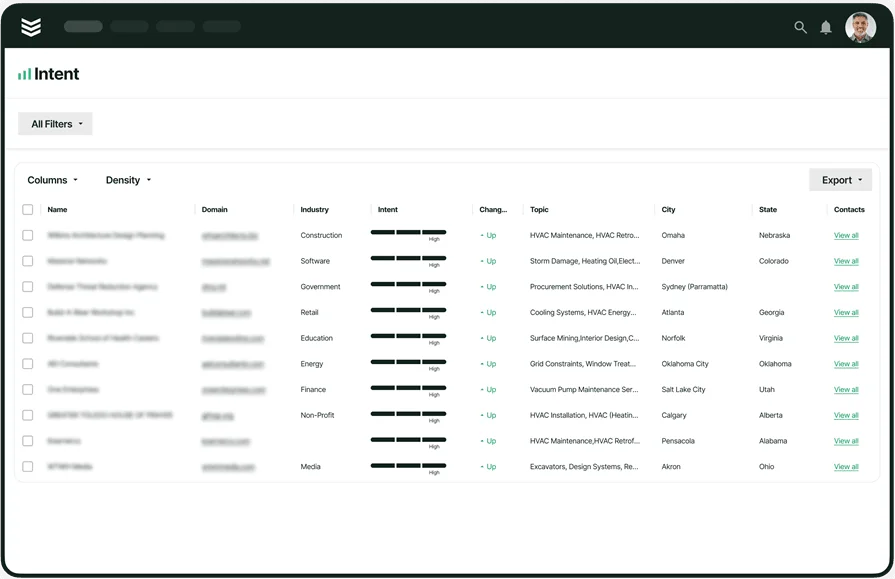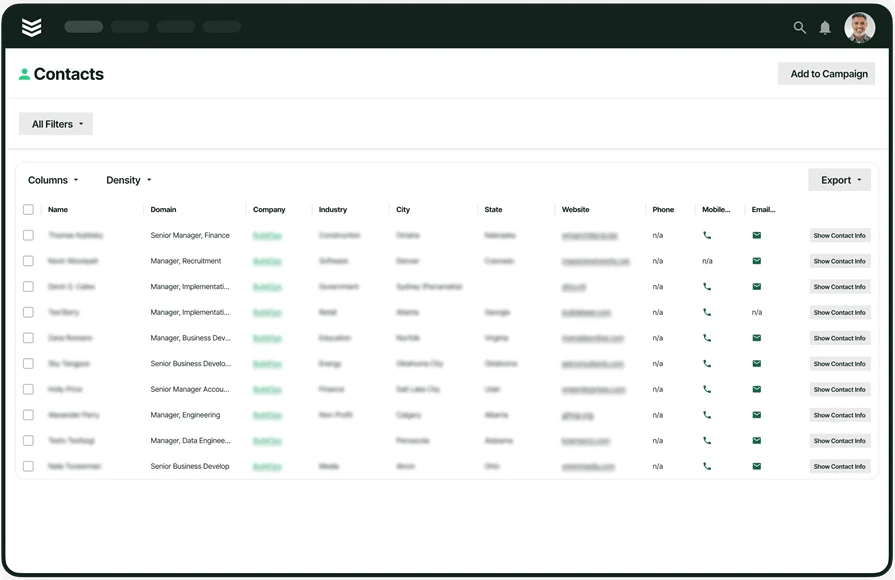Running a field sales team without the right software is like trying to track leads with a pen and a napkin—inefficient, messy, and guaranteed to cost you deals. In field service businesses, sales teams are constantly on the move, meeting prospects, following up with customers, and closing deals on-site. But without the right tools, managing leads, scheduling follow-ups, and keeping data organized becomes a logistical nightmare.
That’s where field sales software comes in. With automation, mobile access, and real-time data syncing, the right solution can eliminate bottlenecks, speed up the sales cycle, and help your team focus on what matters—closing more deals.
In this guide, we’ll break down everything you need to know about choosing and using field sales software, including:
- Choosing a field sales software for your team
- 5 key features to look for in a field sales management software
- 10 best field sales software for increasing revenue
- 7 benefits of using field sales management software
- 3 important field sales software FAQs answered
Before you invest in software, you need to know what to look for. Not all field sales solutions are built the same, and picking the wrong one can slow your team down instead of speeding them up. Let’s start with the key factors to consider when choosing a field sales software for your business.
Choosing a field sales software for your team
Selling in the field service industry isn’t like selling in a traditional office setting. Your team is constantly on the move—meeting prospects at job sites, handling service agreements on the spot, and juggling follow-ups between appointments. Without the right software, tracking leads, scheduling estimates, and closing deals become chaotic. That’s why automation matters. The right field sales software keeps everything running smoothly, so your team spends less time on paperwork and more time securing contracts. Here’s what to consider:
- Job-site efficiency – Can sales reps generate quotes, send proposals, and collect digital signatures on-site? If your team still relies on paper contracts or manual approvals, you’re losing deals to slow turnaround times.
- Automated lead & follow-up tracking – Does the software capture every customer interaction and schedule follow-ups automatically? In field service sales, losing track of a lead means handing business to the competition.
- Scheduling & dispatch integration – Does it sync with your job scheduling software? Your sales team needs to learn how to coordinate with dispatchers and technicians—if your tools don’t talk to each other, service delays and missed appointments will cost you revenue.
- Real-time pricing & inventory sync – Can reps access up-to-date pricing, service packages, and inventory levels? Selling in the field requires immediate answers—waiting on back-office approvals or stock checks slows everything down.
- Features – Does it include must-have tools like mobile estimates, route optimization, and automated appointment reminders? Field service sales teams need more than just a CRM—they need software features that are built for on-the-go selling.
The best field sales software doesn’t just manage contacts—it streamlines every step of the sales process, from the first handshake to the final invoice. But not all platforms are built the same. Let’s break down the four key features that can make or break your sales team’s efficiency.
5 key features to look for in a field sales management software
When your sales team is out in the field, every second counts. Whether they’re closing deals on-site, adjusting proposals based on real-time service needs, or scheduling follow-ups with busy customers, the right field sales management software keeps them efficient. Without automation, reps waste hours chasing paperwork, double-booking appointments, or losing deals to slow response times.
Here are the must-have features that keep field sales teams ahead.
1. Mobile quoting and digital contracts
Field sales reps don’t have time to drive back to the office just to generate a quote. Customers expect fast answers, and if your competitor can send a proposal before you do, you’ve already lost the job. A field sales software with mobile quoting lets reps build, customize, and send professional estimates right from their phone or tablet.
Even better—digital contracts allow customers to approve proposals on the spot, reducing back-and-forth delays. Instead of telling a commercial property manager, “I’ll get back to you,” a rep using field sales quoting software can instantly apply the right service package, generate a price, and send a contract—all before leaving the site.
2. Automated lead tracking and follow-ups
In field service sales, follow-ups are where most deals fall apart. Leads get lost, callbacks are forgotten, and customers move on to someone more responsive. A field sales platform with automated follow-ups ensures every lead is tracked, scheduled, and nurtured without reps manually keeping tabs.
Smart reminders and email automation take the guesswork out of staying engaged with prospects. A sales rep quoting a maintenance contract, for example, doesn’t have to rely on sticky notes or memory—field sales pipeline software automatically logs every lead, sets reminders for follow-ups, and provides a clear visual of where each deal stands, making sure nothing slips through the cracks.

BuildOps CRM & pipeline tools
Boost your sales pipeline with intent-based leads in your area
3. Scheduling and dispatch integration
Field sales doesn’t operate in a bubble—every closed deal needs to be scheduled and dispatched efficiently. If your sales software doesn’t connect with field service scheduling, you’re stuck manually transferring data and hoping jobs don’t slip through the cracks.
With real-time scheduling integration, reps can instantly book service calls, confirm technician availability, and even coordinate with dispatchers—all from the same platform. A rep finalizing a commercial refrigeration install, for example, doesn’t need to call the back office to find an available technician. Instead, they simply check the system and schedule the job using field sales software with built-in scheduling—locking in the deal without delays.
4. Real-time pricing and inventory management
Field sales teams make better decisions when they have real-time insights into performance, customer behavior, and deal trends. Instead of manually compiling reports or relying on outdated data, AI-powered sales reporting provides accurate forecasting, tracks key performance metrics, and highlights opportunities to close more deals.
A regional sales manager, for example, can use field sales reporting software to instantly identify underperforming territories, adjust sales strategies, and ensure reps focus on the most profitable opportunities.
5. Automated service agreements
For field service businesses, recurring contracts and service agreements are the backbone of steady revenue. But managing these agreements manually is time-consuming and prone to errors. Automated service agreements allow sales reps to generate, customize, and renew contracts seamlessly—ensuring no renewal deadlines are missed and customers stay on long-term plans.
A sales rep closing a preventive maintenance contract, for example, can set up field sales contract management software to automatically generate recurring invoices, track service schedules, and alert customers when it’s time for renewal, keeping revenue flowing without administrative headaches.
Other valuable features for field sales management software
Not every feature in a field sales management platform is a must-have, but some tools can streamline workflows, improve communication, and make daily operations smoother. These features may not be dealbreakers, but they can give sales teams an edge by boosting productivity and enhancing the customer experience.
- Advanced dispatching for sales and service teams – Field sales and service teams need to stay in sync to prevent scheduling conflicts and missed opportunities. With field sales dispatch software, reps can coordinate seamlessly with dispatchers, ensuring that closed deals turn into scheduled jobs without delays or miscommunication.
- Integrated fleet tracking – Sales reps often visit multiple job sites in a day, and managing company vehicles efficiently is key to reducing operational costs. Field sales fleet management software helps businesses track vehicle locations, optimize routes, and monitor fuel usage, ensuring sales teams arrive on time while keeping expenses in check.
- Automated invoicing and payments – Once a deal is closed, the last thing a sales team needs is a slow, manual billing process delaying revenue. Field sales invoicing software generates invoices automatically, syncs with completed jobs, and sends payment reminders—helping businesses get paid faster without extra administrative work.
When your field sales team has the right tools, deals close faster, and operations run smoother. But features alone aren’t enough—the best software helps increase revenue by making every part of the sales process more efficient. Next, let’s look at the top field sales software options that are helping teams close more business.
10 best field sales software for increasing revenue
Field service businesses rely on sales teams to generate revenue, but without the right software, reps spend more time on administrative work than closing deals. The best field sales software automates lead tracking, streamlines scheduling, and integrates with dispatch and invoicing systems, ensuring a seamless process from first contact to final payment.
Here are the top solutions based on different industry needs.
1. Best for commercial: BuildOps
BuildOps is built specifically for commercial contractors, making it the go-to solution for managing field sales, service agreements, and operational workflows in one place. Unlike residential-focused CRMs, BuildOps provides a fully integrated sales and service platform, ensuring that deals move from proposal to dispatch without manual data entry. Commercial sales teams can use automated follow-ups, AI-driven reporting, and real-time inventory tracking to close more contracts while keeping operations smooth.
How Pricing Works: We provide weekly live demos and the option to arrange a personalized session so you may explore features and choose a solution that suits your needs.
What Sets It Apart for Commercial Sales: BuildOps eliminates sales and service disconnects, allowing commercial teams to manage leads, contracts, scheduling, and service tracking in one system without relying on multiple disconnected tools.

Intent-based pipeline tools
Discover the hot leads in your area and get quotes out faster—all in one tool.
2. Best for residential: Housecall Pro
Image Source: Housecall Pro
Housecall Pro is a popular all-in-one platform for residential service businesses, offering sales tracking, online booking, and invoicing features in a single app. It works well for smaller teams that need a simple way to manage leads, appointments, and customer communications without heavy customization. However, its features cater more to home service professionals rather than commercial sales teams. Larger businesses may find their reporting and automation features lacking.
How Pricing Works: Housecall Pro uses a tiered subscription model, starting at around $65 per month, with higher-tier plans unlocking advanced automation and reporting tools.
What Sets It Apart for Residential Sales: Housecall Pro is designed for ease of use, with simple tools that help home service businesses manage appointments, send estimates, and collect payments seamlessly.
How It Compares to BuildOps: See for yourself, in our breakdown of Housecall Pro vs BuildOps
3. Best for general contractors: Jobber
Image Source: Jobber
Jobber is a well-known solution for general contractors and field service businesses looking to automate their workflows. It offers customer relationship management (CRM), quoting, scheduling, and invoicing tools all in one system. While it’s a solid option for small-to-medium-sized businesses, its lack of commercial-scale reporting, advanced forecasting, and real-time dispatching may not be ideal for larger contractors managing multiple teams.
How Pricing Works: Jobber offers multiple plans, starting at $69 per month for basic features, with more advanced options available at higher tiers.
What Sets It Apart for General Contractors: Jobber is ideal for small-to-mid-sized general contractors who need an easy-to-use platform that covers lead tracking, quoting, and scheduling without added complexity.
4. Best mobile solution: Salesforce
Image Source: Salesforce
Salesforce is a widely recognized CRM that offers mobile-friendly solutions for field sales teams. It provides cloud-based lead management, customer engagement tools, and AI-powered analytics that can be accessed on the go. While it’s a strong choice for enterprise businesses, smaller field service teams may find it overly complex, requiring extensive customization and dedicated admin support.
How Pricing Works: Salesforce operates on a subscription-based pricing model, with its Sales Cloud plans starting at $25 per user/month, scaling up significantly for more advanced features and automation tools.
What Sets It Apart for Mobile Sales: Salesforce delivers a highly customizable mobile CRM, making it ideal for large-scale field sales teams that need deep customer insights and AI-driven recommendations in real-time.
5. Best for specialty contractors: JobTread
Image Source: JobTread
JobTread is designed for specialty contractors who need a project-focused sales and management platform. It includes job costing, proposal management, and financial tracking tools, making it a solid option for contractors who sell and execute custom projects. However, its field sales capabilities are limited, and it lacks the dispatch and service-tracking automation found in solutions built for service-heavy industries.
How Pricing Works: JobTread offers tiered pricing based on business size, with costs starting at $99 per month, scaling based on the number of users and advanced features needed.
What Sets It Apart for Specialty Contractors: JobTread combines project management with sales tools, making it a strong choice for contractors handling custom jobs that require accurate budgeting and tracking.
6. Best for construction businesses: Procore
Image Source: Procore
Procore is a well-known construction management platform that integrates sales, project management, and financial tracking into one system. It’s great for large construction firms managing complex projects, but its field sales tools are limited compared to more specialized sales platforms. Businesses looking for end-to-end lead management and automated quoting may need additional integrations.
How Pricing Works: Procore offers custom pricing based on company size and project scope, typically requiring a demo and consultation for a tailored quote.
What Sets It Apart for Construction Businesses: Procore excels at managing large-scale construction projects, making it best suited for contractors who need advanced project tracking alongside basic sales features.
7. Best for HVAC services: FieldEdge
Image Source: FieldEdge
FieldEdge is designed for HVAC contractors who need an all-in-one solution for sales, dispatching, and invoicing. It offers real-time customer history, automated service agreements, and mobile estimates, making it a strong choice for small to mid-sized HVAC businesses. However, FieldEdge may not be ideal for larger commercial contractors that require more advanced reporting, inventory tracking, and multi-location management.
How Pricing Works: FieldEdge follows a custom pricing model based on the size of the business and required features, with quotes provided upon request.
What Sets It Apart for HVAC Services: FieldEdge focuses on residential HVAC contractors by offering automated maintenance agreements and quick estimating tools, making it great for companies handling routine service calls and seasonal HVAC tune-ups.
8. Best for plumbing services: Routzy
Image Source: Routzy
Routzy is a mobile sales app designed for plumbers who need simple lead tracking, quoting, and CRM tools on the go. It helps sales reps organize customer information, generate quotes, and capture digital signatures in the field. However, it lacks built-in dispatching and job scheduling, which means businesses relying on tight coordination between sales and service teams may need additional software integrations.
How Pricing Works: Routzy is a one-time purchase app, with a flat fee of $499 per user, making it different from typical subscription-based software.
What Sets It Apart for Plumbing Services: Routzy is a lightweight, mobile-first CRM tailored for plumbing businesses that need quick and easy tools for quoting and customer tracking without the complexity of full-scale field service management software.
9. Best for electrical services: Kickserv
Image Source: Kickserv
Kickserv is a budget-friendly field service platform that provides CRM, invoicing, and job scheduling for electricians and other service professionals. It’s great for small electrical contractors that need a simple way to manage sales, job tracking, and payments in one system. However, Kickserv lacks the scalability needed for larger electrical firms, particularly those handling complex commercial projects with multiple technicians and locations.
How Pricing Works: Kickserv starts at $59 per month for basic features, with higher-tier plans offering more automation and reporting tools.
What Sets It Apart for Electrical Services: Kickserv is affordable and easy to use, making it a strong choice for small electrical businesses looking for simple job scheduling, invoicing, and customer tracking tools.
10. Best for mechanical services: eSUB
Image Source: eSUB
eSUB is built specifically for mechanical contractors who need document control, field reporting, and real-time communication between job sites and the office. It excels at project tracking and labor management, making it a solid choice for firms handling large-scale mechanical installations. However, eSUB doesn’t offer native estimating or CRM tools, meaning businesses looking for an all-in-one sales and operations platform may need additional integrations.
How Pricing Works: eSUB offers custom pricing based on business size and required features, with quotes available upon request.
What Sets It Apart for Mechanical Services: eSUB is tailored for mechanical contractors that need strong documentation control and field reporting, making it a top choice for contractors handling large-scale industrial and commercial projects.

Get the Software Scoresheet
Compare top tools at a glance with our easy-to-use software scoresheet.
7 benefits of using field sales management software
Field service sales teams juggle multiple responsibilities every day—from prospecting and follow-ups to closing deals and coordinating with service teams. Without the right tools, reps waste valuable time on manual data entry, miscommunication, and missed opportunities. Field sales management software automates these processes, helping teams work smarter, close deals faster, and drive revenue growth. Here’s how:
1. Faster lead response times
When a potential customer reaches out, speed matters. Field sales teams that rely on manual lead tracking risk losing business to competitors who follow up faster. With automated lead distribution, incoming inquiries are instantly assigned to available reps, who receive real-time notifications to act quickly.
A sales rep handling HVAC service contracts, for example, can receive a new lead, send a quote, and schedule a follow-up—all within minutes instead of hours. Curious to learn more? Learn how to streamline lead management and close more deals faster.
2. Seamless scheduling and dispatch integration
A deal isn’t done until the service is scheduled. If sales reps and dispatch teams aren’t aligned, jobs get delayed, and customers lose confidence. Field sales scheduling software connects directly with dispatch, so when a rep closes a deal, they can immediately book the service call without back-and-forth phone calls.
Picture an electrical sales rep selling a panel upgrade—the software instantly checks technician availability and schedules the job while the customer is still on-site.
3. Automated follow-ups that close more deals
Most deals don’t close on the first interaction. Manually tracking follow-ups leads to missed opportunities and lost revenue. With automated email and SMS reminders, sales reps never forget to check in with prospects.
A plumbing sales rep who provides an estimate for a repiping job, for instance, can have the system automatically send a follow-up message in three days, increasing the chances of closing the deal without extra effort.
4. Real-time pricing and inventory accuracy
Nothing kills a deal faster than incorrect pricing or unavailable inventory. If a rep promises a service package or equipment that’s out of stock, it creates frustration and delays. Integrated pricing and inventory management ensures reps always quote accurate numbers based on real-time availability.
A mechanical contractor selling commercial HVAC units, for example, can instantly confirm stock levels and offer alternatives if certain models are unavailable.
5. Mobile access to sales data from anywhere
Field sales reps aren’t sitting at desks—they’re meeting clients on job sites, at offices, or on the road. Without mobile-friendly tools, accessing customer details, pricing, and schedules is a challenge. With cloud-based field sales software, reps can pull up client history, update deals, and send quotes from their phone or tablet.
A roofing sales rep, for instance, can generate a contract and collect a digital signature on-site, eliminating the need for follow-up paperwork.
6. AI-powered reporting and sales insights
Guesswork doesn’t drive revenue—data does. Without real-time analytics, sales teams have no clear visibility into performance trends or bottlenecks. AI-powered reporting identifies which deals are stalling, which reps are underperforming, and where follow-ups are needed.
A regional sales manager overseeing multiple locations can instantly pull up win/loss rates, sales velocity, and forecasted revenue, allowing them to make smarter decisions to hit targets. Dive deeper and check out the latest on CRM sales insights.
7. Streamlined contract and service agreement management
Managing service contracts manually leads to missed renewals, lost revenue, and extra admin work. Field sales software automates contract generation, renewal reminders, and e-signatures, ensuring agreements are never lost.
A commercial refrigeration sales rep, for example, can set up a recurring service agreement with auto-renewal notifications, keeping customers locked into long-term contracts effortlessly.
3 important field sales software FAQs answered
Field service sales teams often ask how to choose, implement, and get the most value from field sales software. Whether you’re looking for better lead tracking, automated follow-ups, or seamless scheduling, the right software helps boost sales efficiency and streamline operations. Here are the answers to the top three questions.
1. What is field sales software?
Field sales software is a tool that automates lead tracking, quoting, scheduling, and customer interactions for sales teams working in the field. It helps reps manage deals, send proposals, and coordinate with dispatch and service teams—all from a platform built for both the office and the field.
Many solutions also include real-time pricing, inventory management, and AI-powered analytics, ensuring reps always have the most accurate data when closing deals. By reducing manual tasks, field sales software increases productivity, improves customer experience, and drives more revenue.
2. How much does field sales management software cost?
Pricing varies based on features, number of users, and business size. Common pricing models include:
- Subscription-based: Monthly fees ranging from $60 to $350 per user
- Tiered pricing: Higher plans offer advanced automation and reporting
- Custom pricing: Enterprise solutions typically require a tailored quote
3. Who can get the most value from field sales software?
Field sales software is essential for businesses that rely on mobile sales teams to close deals on-site. This includes:
- HVAC, plumbing, and electrical contractors managing service agreements
- Mechanical and specialty contractors selling high-ticket installations
- General contractors handling large-scale construction projects
- Sales reps in commercial services who need real-time customer data and automation tools
Businesses looking to streamline operations, reduce manual work, and improve sales efficiency benefit the most from adopting field sales software.
A great field sales management software doesn’t just organize contacts—it helps sales teams close deals faster, follow up automatically, and keep service operations running smoothly. From the first lead interaction to contract signing, automation ensures reps spend less time on admin work and more time selling. But not every platform is built with field sales teams in mind.
Many solutions offer basic CRM features, but few are designed for sales reps working in the field—where real-time pricing, instant scheduling, and mobile access make or break a deal. That’s where BuildOps stands out. It connects sales, service, and operations in one platform, ensuring every closed deal moves seamlessly into execution.

Take a closer look at BuildOps
We help field teams work smarter so jobs are always completed on time.









